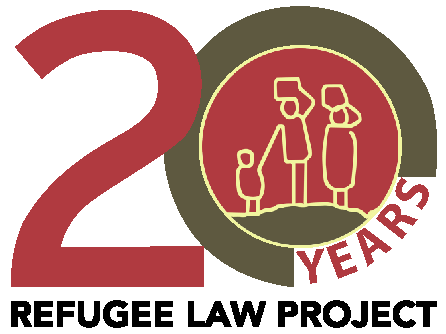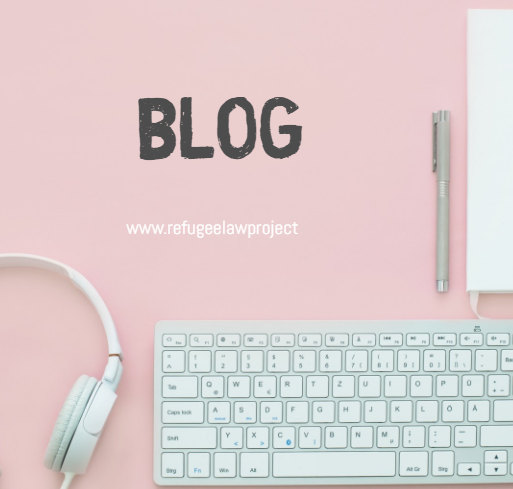What is the meaning of the right to truth? As we celebrate International Day for the Right to the Truth concerning Gross Human Rights Violations and Dignity of victims (celebrated annually since 2010 to promote the spirit of the “Truth”), I offer here some reflections on Uganda’s participation in the third Universal Peer Review (UPR) process, and the plight of victims of rights violations.
Beyond the rhetoric, what does the UPR process mean for transitional justice as a means of ensuring lasting peace and/or non repetition, and what does it do for ordinary victims of conflicts and/or rights violations?
On 1 February 2022 the Government of Uganda (GoU), through the Minister of Foreign Affairs (MOFA), presented Uganda in the Third Cycle of the Universal Periodic Review (UPR) to the Human Rights Council during the 40th Session of the UPR Working Group.[1] The GoU has been part of the UPR process since its inception in 2010.
During 2016 UPR cycle, 226 recommendations were made to the GoU; 143 were accepted and 78 were noted. In terms of transitional justice, the key areas of focus for Uganda’s Transitional Justice cluster during the third UPR of Uganda included: The right to an effective remedy; the rights of children born of war to nationality and birth registration; enforced disappearances; and conflict-related sexual violence. What does this mean for victims and their families who are crying for the truth? Can this UPR engagement help the GoU ensure these victims get to the truth?
Similarly, has the CSO National Stakeholders’ Forum on the UPR mechanism (coordinated by the National Coalition of Human Rights Defenders Uganda (NCHRDU)) put in place any mechanism to remedy the plight of victims of rights violations? Does it make a difference that Uganda is party to international treaties and covenants that provide the right to an effective remedy[i] - including Article 2(3) of the International Covenant on Civil and Political Rights (ICCPR) requiring states to ensure that persons whose rights or freedoms have been violated have access to an effective remedy?
Regarding the right to an effective remedy, during the second UPR of Uganda in 2016, the government accepted the recommendation, to “speedily enact the respective policies and bills on legal aid and transitional justice to fulfill the constitutional mandate to provide justice for all”.[ii] Almost two years after the National Transitional Justice Policy (NTJP) was approved, there has been limited progress towards its implementation. Parliament is required to enact legislation (The Transitional Justice Bill) which will establish the different mechanisms in the NTJP, including reparations programs, processes that contribute to nation-building, and witness protection measures during the prosecution of international crimes. The long delay in implementing the NTJP deprives victims of conflict-related atrocities of access to adequate, prompt and effective remedy and reparations. When will the Legal Aid and Transitional Justice bills be on the order paper of Parliament?
Regarding the Rights of Children Born of War to Nationality and Birth Registration, the GoU during the second UPR of Uganda in 2016 accepted the recommendation to adopt measures to reduce the number of children without birth registration.[iii] During the armed conflict in Northern Uganda between LRA and the Government of Uganda, for instance, tens of thousands of women and girls were targeted for sexual violence by the LRA and Uganda People's Defense Force (UPDF). Many girls and women gave birth to children resulting from forced marriage and rape. These children, commonly referred to as Children Born of War (CBW),[iv] face enormous challenges accessing birth registration documents. Indeed, the total number of CBW in the country remains unknown. How can we enhance the promotion of the rights of CBW in general, as well as their right to know the truth through the documentation process in particular?
Thirdly, on Enforced Disappearances. During the 2016 UPR of Uganda, the GoU noted the recommendation to “[r]atify and accede to the International Convention for the protection of All Persons from Enforced Disappearance…”[v] It is estimated that between 52,000 and 75,000 persons were abducted during the armed conflict in Northern Uganda between the LRA and the Government of Uganda troops.[vi] Although many abductees have returned, 10,000 to 15,000 persons abducted by the LRA are still missing years after the end of the conflict. Many were children at the time of their abduction.
What adequate steps has the GoU taken to identify and locate persons abducted by the LRA, ADF etc. or to provide families with information about the fate of their loved ones, leave alone the contestations on information provided? What has become of the right to truth for the many families still with missing persons?
Last but not least; Conflict-Related Sexual and Gender-Based Violence. In 2016, the Government of Uganda accepted recommendations to implement relevant laws governing sexual and gender-based violence (SGBV), to strengthen measures aimed at protecting and rehabilitating women victims of sexual and domestic violence, and to protect women's rights and combat violence against women and girls.[vii] Thirteen years after the conflict's end, the Government of Uganda has not sufficiently responded to the pressing needs of conflict-related sexual violence (CRSV) survivors as they continue to suffer lifelong consequences of the violations they endured.[viii] For women and girls who returned with children born of war, these consequences are magnified. They face continuous discrimination and rejection when they return to their families and communities and are often stigmatized due to their affiliation with the LRA. Pre-existing discriminatory gender and sociocultural norms aggravate the vulnerability of survivors.
Recommendations
- Recalling Uganda’s troubled past, quickly enact the Transitional Justice Bill and establish measures that provide truth, justice, and reparations to victims of mass atrocities.
- Adopt simplified, trauma sensitive administrative procedures tailored to minimise stigma and allow flexibility in civil registration requirements to ensure that Children Born of War are not denied registration. For example, NIRA should work with survivor groups and local leaders to identify and confirm the nationality of Children Born of War who do not have birth certificates or other formal identification.
- Urgently ratify and accede to the International Convention for the Protection of All Persons from Enforced Disappearance.
- Provide prompt, adequate, and gender-sensitive reparations to victims of CRSV based on broad consultations with victims and affected communities to establish the most appropriate forms of reparations to repair the harm that they suffered.
Until these and many other efforts are untaken, the realization of the ‘Right to Truth’ will remain a myth rather than a reality.
Odokonyero Joel Innocent, TJ Practitioner and Ethnographer is a Research and Advocacy Officer for Conflict, Transitional Justice and Governance Programme with the Refugee Law project, School of Law, Makerere University. Email: This email address is being protected from spambots. You need JavaScript enabled to view it. Twitter: @odokonyero_joel
[1] Other members of the delegation included the Attorney General, Chairperson Parliamentary Committee on Human Rights, and senior officials from MOFA, MOJCA, MOGLSD, MFPEP, MOEs, MOH & MOD.
[i] Universal Declaration of Human Rights (10 December 1948) UNGA Res 217 A (III), Article 4; International Covenant on Civil and Political Rights (23 March 1976) 999 UNTS 1057, Art 2.3.
[ii] UN Human Rights Council, Report of the Working Group on the Universal Periodic Review on Uganda, A/HRC/34/10, Recommendation 115.22; See Report of the Human Rights Council on its thirty-fourth session, 27 February–24 March 2017, A/HRC/34/2
[iii] UN Human Rights Council, Report of the Working Group on the Universal Periodic Review on Uganda, A/HRC/34/10, Recommendation 115.100;
[iv] Ladisch, Virginie / International Center for Transitional Justice (2015): “From Rejection to Redress. Overcoming legacies of conflict-related sexual violence in Northern Uganda”, https://www.ictj.org/sites/default/files/ICTJ-Report-Uganda-Children-2015.pdf, p. 17
[v] UN Human Rights Council, Report of the Working Group on the Universal Periodic Review on Uganda, A/HRC/34/10, Recommendation 116.6;
[vi] The Humanitarian, Uganda struggles to come to terms with its disappeared, https://www.thenewhumanitarian.org/news/2013/08/30/uganda-struggles-come-terms-its-disappeared (2013)
[vii] UN Human Rights Council, Report of the Working Group on the Universal Periodic Review on Uganda, A/HRC/34/10, Recommendation 115.13, and115.68; See Report of the Human Rights Council on its thirty-fourth session, 27 February–24 March 2017, A/HRC/34/2
[viii] See Ladisch, Virginie / International Center for Transitional Justice (2015): “From Rejection to Redress. Overcoming legacies of conflict-related sexual violence in Northern Uganda”, https://www.ictj.org/sites/default/files/ICTJ-Report-Uganda-Children-2015.pdf,and The International Center for Transitional Justice, Confronting Impunity and Engendering the Transitional Justice Process in Uganda (2014) https://www.ictj.org/publication/confronting-impunity-gender-uganda ; Nancy Apiyo and Lindsay McClain Opiyo, “Coping Alone Personal ways of seeking redress for survivors of conflict-SGBV” Justice and Reconciliation Project Field Note 24, March 2017

